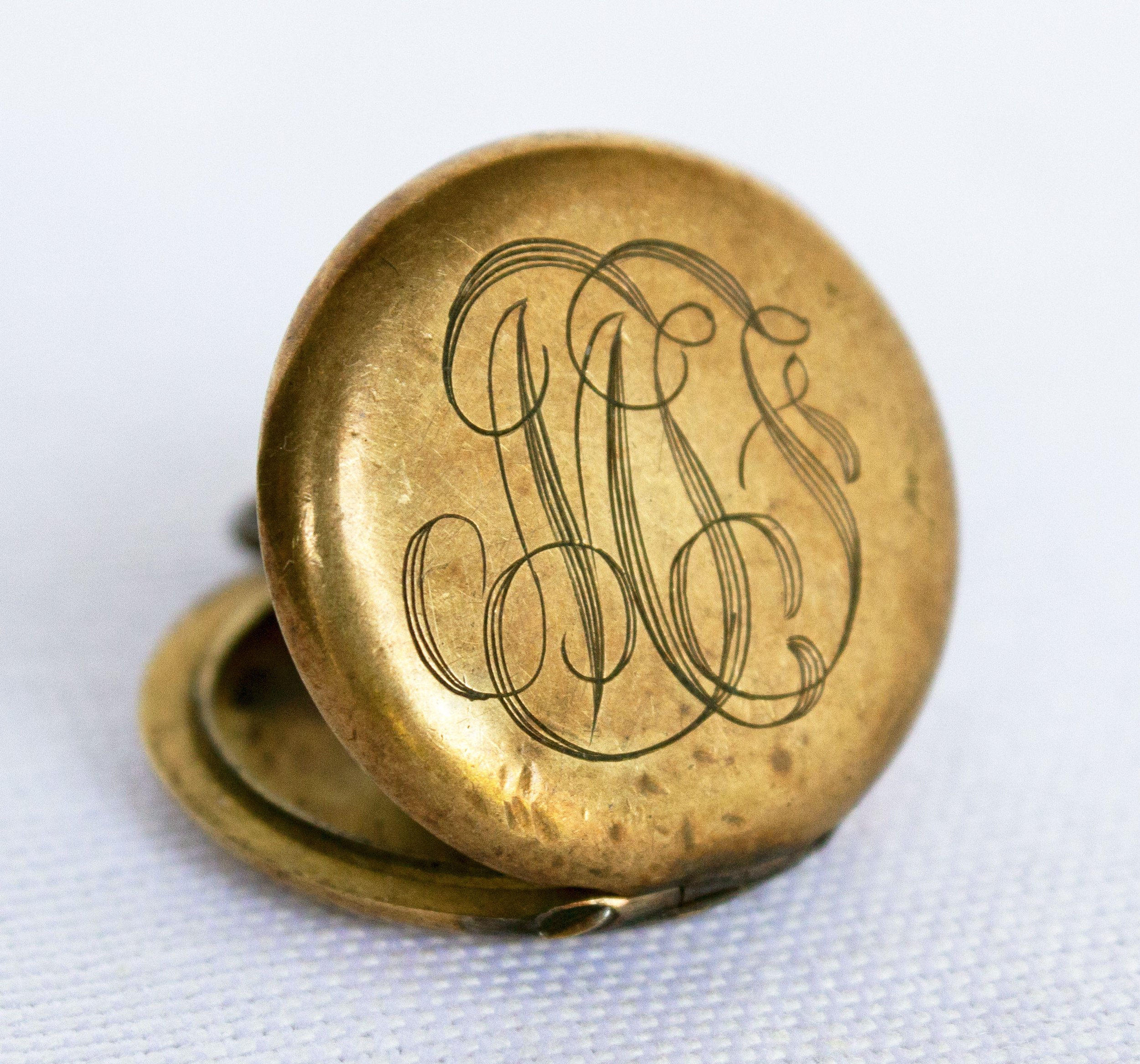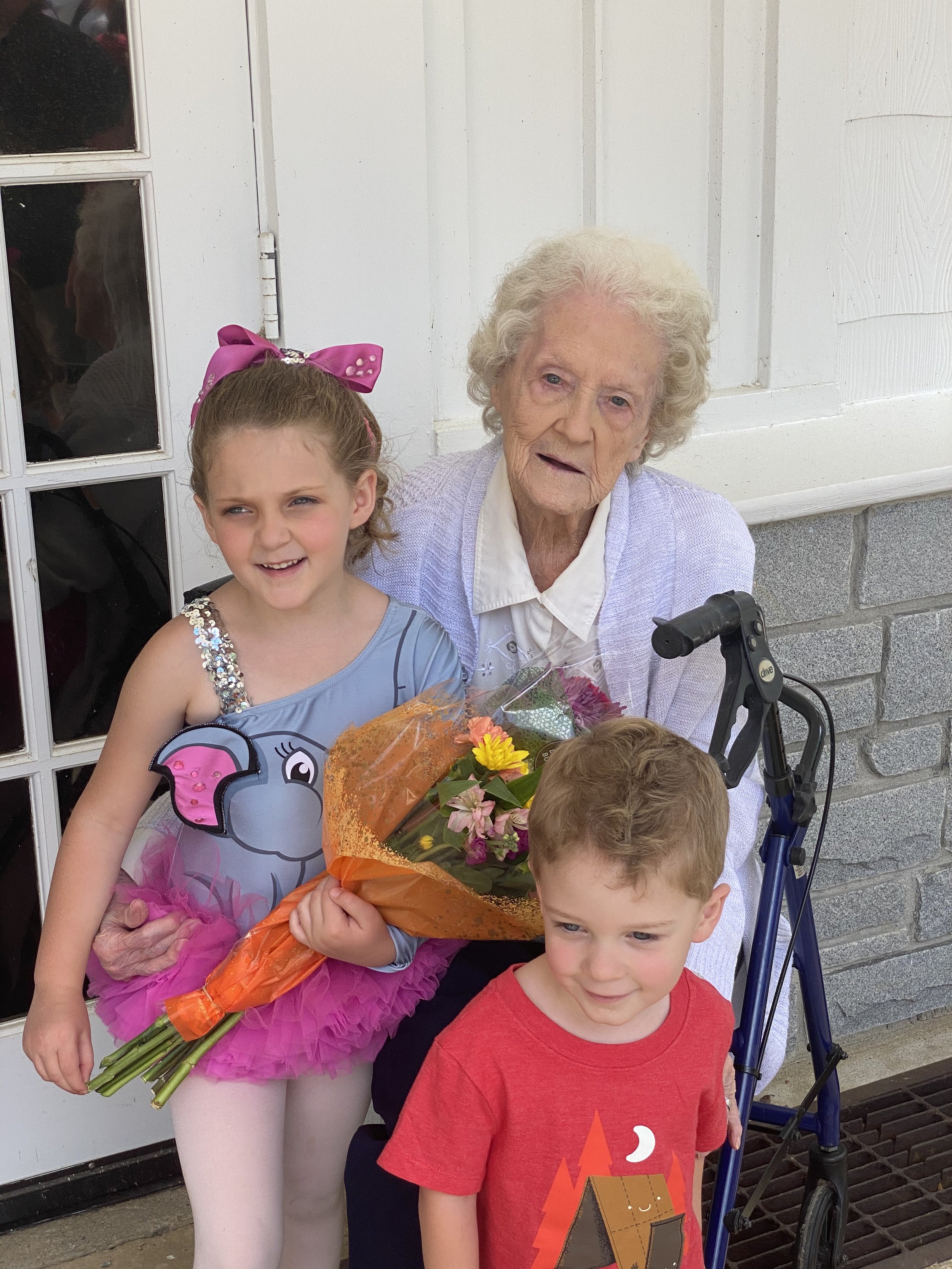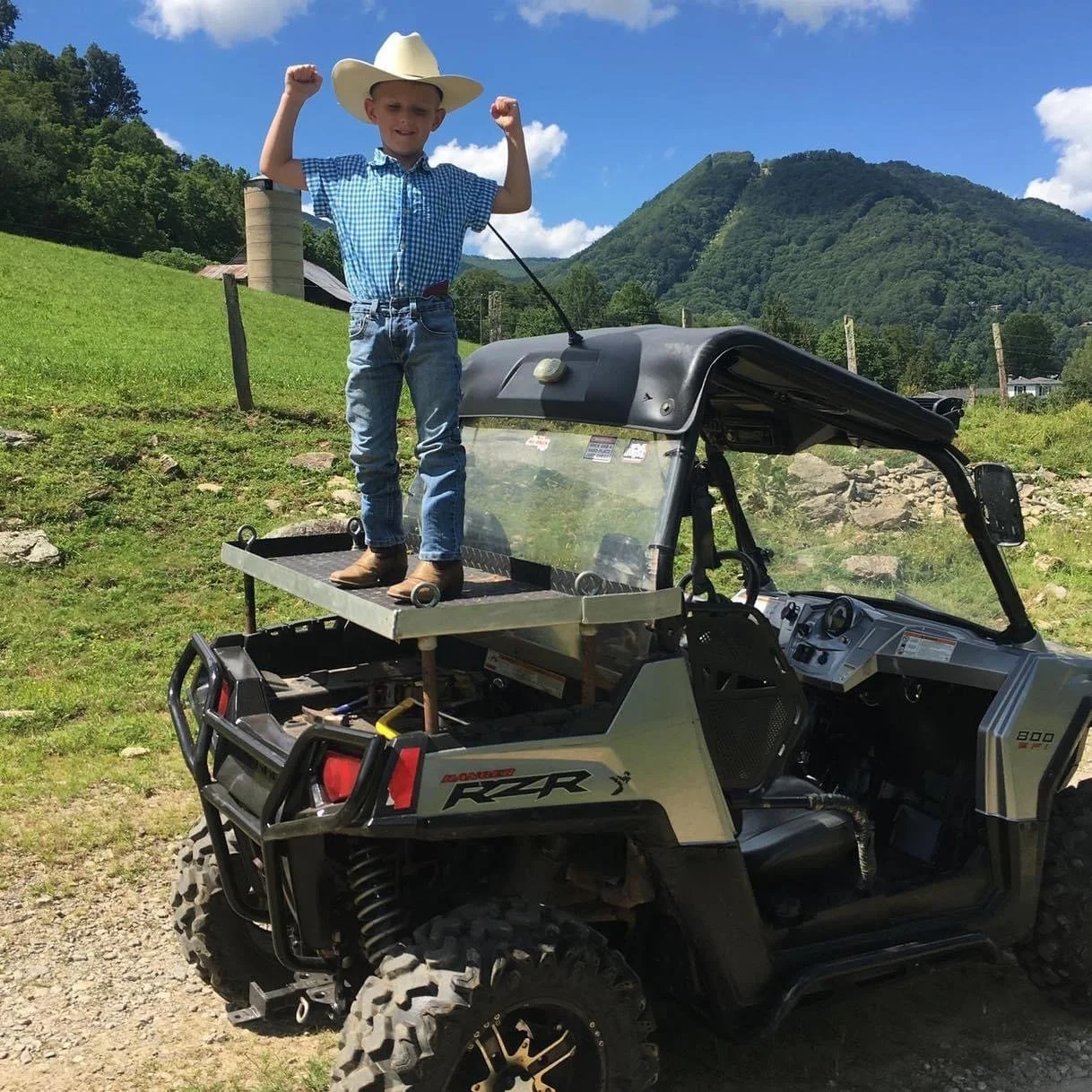Thomas Ore Shipman posing with his first bus, a 1937 Ford
Thomas Ore Shipman with a later bus
Champion Paper Bus Seat
Lisa Conard: “This is the bus seat that my grandfather had. I remember, as a child, he kept it in the basement right as you walked in the door and turned on the lights. What he would do is, when he would get home from Champion he would come in the basement and take his clothes off, I guess, from Champion, and then he would change and go upstairs as to keep everything downstairs, you know, the Champion ‘aroma.’ [laughter] And so, I never knew the full story of the bus seat until my aunt wrote a little blurb, as you'll see in the picture, about how he would pick everyone up—which, you'll hear from her—but, that bus seat, I just remember it so well and I remember thinking, ‘what is that old thing?’ You know? But it wasn't until I got older that I appreciated the story and the warmness of it. A neat story for me is: I go to church in Candler and I was serving on a food team with some people that I didn't realize were from Canton and as we were serving we got to talking about Canton and they were, like, ‘well, where do you live?’ or ‘who do you know there?’ and I was telling them about my grandfather, and they were, like, ‘oh, my goodness, that's Orie Shipman, he used to pick us up in his bus and take us to church,’ or, ‘we would catch it between shifts and he would take us to the pool in that bus.’ I just think that is the coolest thing and I wonder how many stories like that there are: people in Haywood County that he would just seemingly randomly pick up and take to whatever destination, to the movie or wherever. I just thought that was such a sweet story. So, from that point on we were just bonded. That they had known my grandfather just tells you what a small world it really is. It was Norma Jean and Francis Henson.”
Brenda Heeg: “I have some information on my father. His name was Thomas Ore Shipman. There were seven children in his family and they lived in some very questionable housing. My grandfather Mark Shipman was not always available. He would even take the family cow and leave home with it while Grandma Julie tried to feed the children. My dad has walked through Henson Cove with a brother, usually, trying to sell a basket that his mother had made out of some kind of tree that they had stripped down the wood off of just to get a little money to have for food. But anyway, he and all his brothers and sisters were dedicated: very good, helpful people. They all raised the cow, the chickens, and killed the hog every year. They all did—they all had their own money because they'd done without for so long.
“When my dad got back to Haywood County from South Carolina he was interested in bus service because Champion Paper was close by. He was able to run a route that would bring the paper mill workers to work. He had several different old buses and he worked on them a lot. When he wasn't trying to sleep in between shift changes he was doing something with the bus: getting ready to take it to Sunday School on Sunday morning or a revival service for two weeks or just to get the workers to work at Champion Paper day, evening, and night. He grew up very hard, very hard, just shacks of a house with most of the time no father there. But he seemed to be very successful. He tore down one house on the corner of 110 and Murray Road and moved down below and we lived in that new house. My sister was just born, I think, then. She was small, anyway. He tore down the original house on the corner up there and built a brick house and that brick house still stands today. It was sold after my dad died and everything and I had moved away and my sister lived in Asheville cause that's where she worked—but anyway, he made a go of the bus driving service. With all the riders that he had I think he started out charging 22 cents a ride to come to work [laughter] and...what else do we know about all of that? He did drive the bus to church for revival services, Sunday morning, Sunday night—revivals lasted two weeks back then, so I was always on that bus because my mom and dad was on that bus.”
Phillis Earley: “I have just heard a lot of stories about the bus was running during World War II and during World War II gas was rationed so a lot of people rode the bus to get to the grocery store and then rode back with [my dad] because they had no way to get to town. I know I've had a cousin tell me they didn't know what they would have done if daddy didn't have the bus going so that they could have a way to get to town. I also had other relatives—kids that rode the bus with workers to Canton, downtown, to get to the Canton pool [laughter] and then the mom would pick them up, you know, after they'd been there long enough to have a swim. But the old bus seat sat in dad's basement for many, many years. It was the right length to go between his garage door and his walk-in door, so it was always a part of the basement. I mean, it was just there. After my dad died, the house was rented and then my daughter [Lisa Conard] moved in it about a year ago and she was fond of the bus seat and saved it so that's pretty much how we still have it. I'm sure there were many other bus seats and whatever happened to those—and I don't know why the bus was ever disassembled and the seats taken out, but for some reason it was and he saved it to be used. He would sit on it to get his boots changed to go from the house to the garden—”
Brenda: “He wouldn't dare go out and back in the house if he had muddy shoes.” [laughter]
Phillis: [laughter] “So, it was a useable piece of furniture in his basement for many years and our basement was often used for family reunions and so a lot of the family has sat on that bus seat through the years. Christmas gatherings, too. That's a big memory for us with the bus seat.”
Brenda: “And Lisa still likes it, apparently, doesn't she?” [both laugh] “She remembers it, too. Mama and daddy used to babysit her.”
Interviews edited for clarity
Submitted by Lisa Conard on July 14, 2022, and Brenda Heeg and Phillis Earley on July 15, 2022












